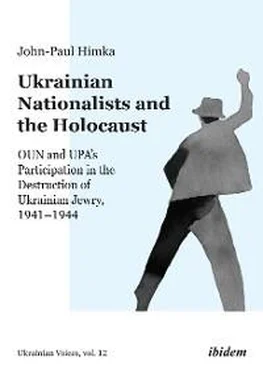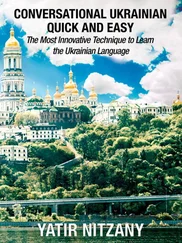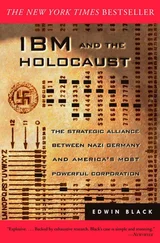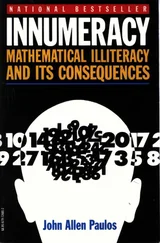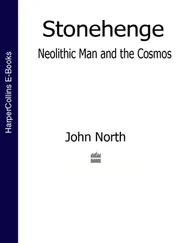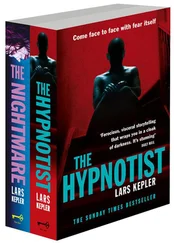My own experience has been that these later testimonies are generally as reliable as the early testimonies collected by the Central Jewish Historical Commission. When I have had the opportunity to compare testimony from the same person over several decades, I have found much more consistency than discrepancy. 71Browning, when he began using testimonies for his project on the Starachowice slave labor camp, was surprised to discover that over time testimonies revealed “a firm core of shared memory” and that his expectations for greater change “were not realized.” 72Shmuel Spector has argued that later testimonies can be superior to their earlier versions: “A comparison of the different versions of the testimony given by the same witness, who related his or her story at different stages of evidence collection, reveals that the testimony given soon after the events it pertained to is not always the most reliable one. The main reason for this is that at that time some of the witnesses had not yet recovered from the horrors they had lived through; only later...they managed to leave them behind and their testimony became more objective and orderly.” 73
Kraft, the cognitive psychologist who studied the videotaped testimonies in the Fortunoff Archive, stated that “those survivors who returned to the [Fortunoff] archive a second time—in most cases, eight years after their first extended recall—gave testimony that was remarkably consistent in structure and content with the earlier testimony.” 74He explained this consistency from the perspective of his discipline:
In the study of Holocaust testimony, the most pervasive finding about memory for atrocity is its extraordinary persistence. Specific memories can remain vivid and powerful for more than fifty years, causing people to cry suddenly, to break down uncontrollably, to become angry. Core memories can remain unchanged over very long periods of time, and memories can intrude forcefully into the consciousness of the individual....One consensus among cognitive theorists is that “memory is always dual.” That is, the present self is aware of the past self experiencing the world....With survivors of atrocity, however, the subjective experience of memory is not always dual. Sometimes, when describing a scene, survivors may be drawn into core memory, losing contact with narrative memory and becoming immersed in visualizing the events of the past....When a person is fully visualizing, or ‘back there,’ as the survivors often say, the past self becomes the present self.
The third body of testimonies used in this study consists of Jewish memoirs produced independently of AŻIH and the Shoah Foundation. I systematically examined the memoir collection in the library of the United States Holocaust Memorial Museum, which I was able to also supplement with additional items. I found that these memoirs, emanating from different people in different countries for over half a century, told the same basic story. There are also many testimonies contained in the memorial, yizkor books, many of which are also cited in the pages that follow.
Survivors’ testimonies are somewhat unusual, since most Jews who remained on Ukrainian territory during World War II did not survive. We are fortunate that a few diaries of persons who perished in the Holocaust have been preserved and published. 75
Ukrainian historians with a nationalist perspective discount or deny the evidential value of Jewish, and also Polish, testimonies about OUN and UPA. This is not surprising, but it is necessary to note that these same historians give great weight to Ukrainian testimonies about the manmade famine of 1932-33, the Holodomor, which took about four million lives in Ukraine. In fact, until the last days of communism and the opening of the archives, oral testimony was the only source that documented that terrible event. And even today, testimony remains a crucial source in understanding the famine. There exists then within Ukrainian studies a double stan-dard with regard to testimony for which there is no intellectual justification.
Many Poles had been living in Galicia and Volhynia when war broke out in September 1939. The Soviets deported some of them, particularly persons associated with the former government and the economic elite, to the interior of the Soviet Union. Then, in 1943, UPA began to kill Polish civilians in mass operations, at first throughout Volhynia, then later in Galicia. Most of the Poles who survived in Ukraine after the war were resettled to Poland over the next few years by the Soviet authorities. During the ethnic cleansing campaign, Poles formed self-defense units that fought UPA, sometimes independently, but sometimes in cooperation with the Germans and the Soviets. During the Soviet counterinsurgency in Western Ukraine, many ethnic Poles were recruited for the destruction battalions that were engaged against UPA. (As noted in the previous chapter, the propagandist Edward Prus had served in such a battalion.) Within the territory of People’s Poland, campaigns against UPA were also conducted, and in 1947 the Ukrainian population of southeastern Poland was resettled to the west, to the former German territories annexed to the new Polish state (the Vistula Operation, Akcja Wisła ). Thus many Poles were witnesses to what transpired in Galicia and Volhynia during the war, and they have preserved many written records and produced a large number of testimonies referring to the eastern borderlands ( Kresy Wschodnie ). As one would expect, these records and testimonies are hostile to OUN-UPA, but they are not particularly Judeophilic either. They constitute an additional body of sources relevant to Ukrainian nationalist participation in the Holocaust.
Unfortunately, I was not able personally to work in the largest repository of these Polish materials, namely the Eastern Archive ( Archiwum Wschodnie ) of the Karta Center in Warsaw, with branches in Poznań, Wrocław, and abroad. So I have had to confine myself to secondary literature which does make use of these materials (e.g., works by Bogdan Musiał and Timothy Snyder). But I have carefully gone through the two-volume collection of summarized testimonies compiled by Władysław Siemaszko and Ewa Siemaszko on “the genocide committed by Ukrainian nationalists on the Polish population of Volhynia 1939-45.” 76There are many references in it to the fate of the Jews. I also had the opportunity to read the wartime diary of Tadeusz Zaderecki, a Pole who had published a number of short, popular books on Judaism in the 1930s and who lived in Lviv during the war years. 77Zaderecki’s diary was edited by David Kahane and Aharon Weiss and published in a Hebrew translation in 1982, but I have used the Polish original at Yad Vashem. 78Yad Vashem also recently published an English translation. 79The diary is permeated with an anti-Ukrainian animus, but it remains an important source on the Holocaust in Lviv.
I have made every effort to consult as many relevant accounts by Ukrainians as I could, but for the most part, Ukrainian memoirs avoid the topic of the Holocaust. Shmuel Spector wrote of them: “...quite a few of the Ukrainians who after the war fled to the countries of Western Europe had collaborated with the Nazis, including active participation in the murder of Jews, either as policemen or as officials of the Nazi administration. Their memoirs and articles written after the war ignore completely the Jewish issue. There are even individuals seeking to present the authors of these memoirs as those who had saved Jews or helped them in their predicament.” 80This is too all-encompassing a generalization, but it does represent the bulk of what the historian finds in Ukrainian memoirs.
Читать дальше
